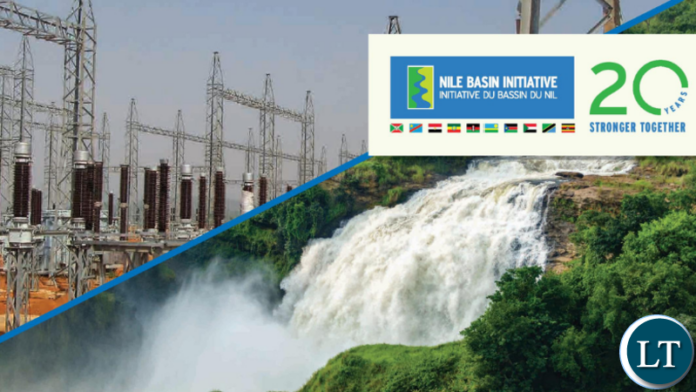By BENEDICT TEMBO
Africa’s water basins could benefit significantly from cooperation among the continent’s river basin organisations (RBOs).
To that extent, Nile Basin Initiative (NBI) Regional Coordinator Isaac Alukwe sees the recent tour to the Zambezi water Commission (ZAMCOM) and Zambezi River Authority (ZRA) as the genesis of cooperation between RBOs).
Dr Alukwe was part of the 35-member high-powered delegation on the NBI study tour to ZAMCOM and ZRA a fortnight ago.
“The journey to collaborative and experiential learning and study tours between the River Basin Organisations just started by NBI visiting ZAMCOM, and the converging of the 18 RBOs under the umbrella of ANBO (African Network of Basin Organisations) in Entebbe, convened by the NBI will cement this collaborative relationship,” he said.
The study tour was aimed at enabling the participants from the Nile Basin countries, Lake Victoria Basin Commission, Nile Basin Discourse (a civil society organisation in the Nile Basin) and NBI staff to share experiences with different water monitoring systems and tools.
Several meetings with ZAMCOM and ZRA leaderships took place during the study tour.
The visits targeted interventions in water pollution control, database centres, eutrophicated lakes/impoundments in the basin and water monitoring systems. Dr Alukwe was impressed with the support received by ZAMCOM from the member countries through Southern African Development Community which he described as “solid and encouraging.”
He said whereas not all member countries are up todate with their annual country contributions, remittances to keep the commission up and running are regular.
“This is quite commendable,” he said.
Dr Alukwe observed that ZAMCOM can as well learn from the NBI beyond enhancing the transboundary cooperation and policy development in the sustainable use of the Zambezi River waters to the real investments on the ground through benefit-sharing directly to the local communities through actual investments and developments as exemplified in the activities of the NBI as a river basin organisation.
He cited the Lake Edward and Albert Fisheries Project, which benefit Democratic Republic of Congo and Uganda as well as the Regional Rusumo Hydroelectric Power Project shared between Burundi, Rwanda and Tanzania.
There is also the Hydromet Project, power interconnections between the member countries to enhance power development and trading/wheeling), among others, which have all been implemented by the NBI through the NBI/NELSAP based in Kigali, Rwanda.
Dr Alukwe said the role of ZRA in the management of Lake Kariba is quite exquisite and bolsters the transboundary cooperation and benefit sharing from the lake through energy generation, and equitable sharing of the benefits from, the common water resource.
He was also impressed by the real-time water quality testing and monitoring which was an idea worth transferring the knowledge to the Nile Basin.
The NBI intends to escalate the collaboration with ZAMCOM and ZRA, hence it is planned that around the month of May this year, ZAMCOM/ZRA will be among other River Basin Organisations in Africa totalling 18 under the umbrella of the ANBO, which will converge in Entebbe Uganda.
“This will encourage and foster experience sharing and learning by the basin organisations,” Dr Alukwe said.
He said the water equipment particularly the ZRA water boats used for water monitoring and boat cruise was an exhilarating experience.
“The team was able to take a boat ride to the Kariba Dam, had dinner on the ferry and eventually held a final meeting on the ferry. This was indeed an exciting and memorable experience. However, it is worth mentioning that NBI has equally unparalleled achievements that are worth learning from, and emulating by other river basin organisations globally,” Dr Alukwe said.
He said the NBI 10-year strategy in its second phase covers the core goals in the areas of water security, energy security, food security, environmental sustainability, climate change adaptation, strengthening transboundary water governance.
Dr Alukwe said the strategy, which ends in 2027 and has seen realisation of 134 projects identified by countries of which 84 projects have been achieved on the in form of plans and actual projects on the ground including tangible flagship projects like the Rusumo hydropower, Lake Edward and Albert fisheries project and several power interconnection transmission lines projects.
“The interconnection projects have realised interconnectivity of the Eastern Power Pool (EAPP) to the Southern Power Pool (SAPP), courtesy of the Nile Basin Initiative through her investment arm known as the Nile Equatorial Lakes subsidiary Action Programme (NELSAP),” he said
However, ZRA chief executive officer Munyaradzi Munodawafa said he was not sure as to what the NBI would benefit from ZRA given their kind of utility position compared to a commission like status.
“Our approach to water quality has to drastically changed, choice of hotsports, access to grant funding,” Mr Munodawafa said, suggesting the need to come up with a joint commission arrangement for technical issues with the NBI.
He said riparian community interfaces have not been elaborate.
“We can learn from them”, Mr Munodawafa said, pointing to sedimentation checks as one of the learning points from the NBI.


